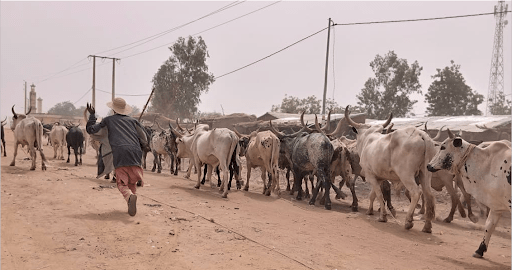FUNDING: EUROPEAN UNION EMERGENCY TRUST FUND FOR AFRICA (EUTF FOR AFRICA)
Since September 2020, Promediation has been implementing a regional project supported by the European Union Emergency Trust Fund for Africa (EUTF for Africa). This project aims to strengthen regional and national cooperation between representatives of nomadic transhumant herders and the authorities of Accra Initiative member states, including security officials, in order to help curb the spread of insecurity towards the Gulf of Guinea. Indeed, the management of transhumance routes and livestock flows from the livestock-producing countries of the Sahel to the consumer countries of the Gulf of Guinea has become one of the major components of strategies aimed at preventing this spread.
Promediation has placed the facilitation of a negotiation process between Sahelian states and coastal states at the heart of its project, so they can jointly develop new practices to secure transhumance routes. With this aim, Promediation has organized several high-level meetings aimed at strengthening cooperation between security and pastoral actors from the Sahel and the Gulf of Guinea. Through the mobilization of this network, the Project has contributed to creating a political dynamic fostering closer ties between POs [Pastoral Organizations] and authorities for taking pastoral issues into account.
In parallel with these regional meetings, Promediation conducted field missions in the cross-border regions between the Sahel and the Gulf of Guinea to better understand the security and pastoral situation there, particularly regarding issues related to cattle theft.
Following these missions, Promediation contributed to the operationalization of informal alert systems through the formalization of dialogue frameworks and the networking of key individuals on both sides of the borders, through the creation of 6 cross-border cells dedicated to combating insecurity and cattle theft. Throughout the program, Promediation teams provided information on the evolution of the security threat, enabled the sharing of analyses and experiences, and opened forums for exchange allowing for the development of joint solutions to ensure the mobility of goods and people without weakening the security of cross-border areas.
